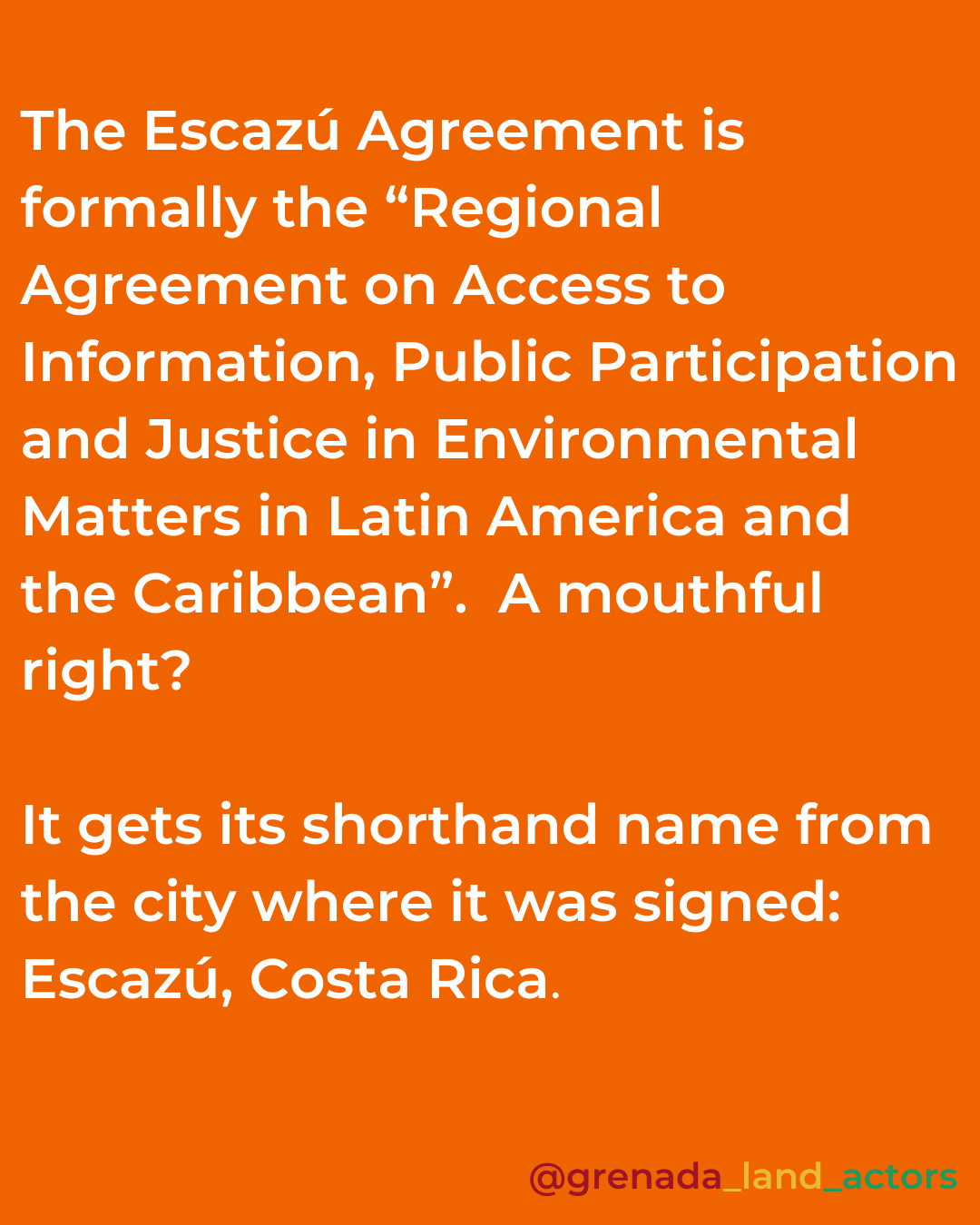What is the Escazú Agreement? And what exactly do we mean when we say that all humans have the "right to a healthy environment"?
This resource delves into the Escazú Agreement and what it means for the average citizen in Grenada, and how you can become more informed about and involved with environmental issues.
QUICK FACTS
The Regional Agreement on Access to Information, Public Participation and Justice in Environmental Matters in Latin America and the Caribbean was signed in Escazú, Costa Rica in September 2018. Like other international agreements, e.g., the Paris Agreement or Ramsar Convention, it is commonly referred to by its city of signing.
The Escazú Agreement is the first legally binding regional treaty in Latin America and the Caribbean that links environmental protection with human rights.
As the full name suggests, it aims to strengthen environmental governance by ensuring that citizens can access information, participate in decision-making, and seek justice in environmental matters; it even offers legal protection for those on the frontline fighting for environmental issues, i.e., environmental defenders.
The key principles of the Escazú Agreement are Environmental Democracy, i.e., promoting transparency, accountability, and inclusiveness in environmental decision-making; Non-discrimination, i.e, ensuring that vulnerable populations have equal access to environmental rights; and Intergenerational Equity, protecting environmental rights for both present and future generations.
-
These sources provide valuable insights into the Escazú Agreement and its role in environmental governance and human rights protection across Latin America and the Caribbean.

